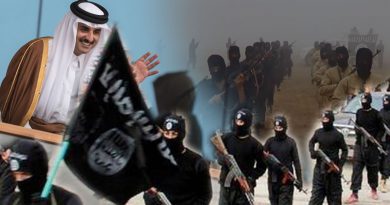Syed Qutb—who injected Leninism in the name of Islamic Revolution
The two key concepts these thinkers borrowed from Leninism were the “state” and “revolution”.
Radical and revolutionary Islam, which emerged as reactions to colonialism, were inspired more by socialist values than by liberal democratic values, and they formulated their principles in line with this outlook. It was common in the Islamic world until the 1980s to consider Islam as a source of ideology as well as a revolutionary ideology.
It was particularly the Iranian revolution, which became and inspirational reference for Islamic movements at that time. In this period, Islam was taken by Muslim thinkers of Iranian origin as well as by those of North African origin, almost as a kind of state religion, a revolutionary ideology, and a theocratic political structure.
Such interpretations of Islam can be traced back, in the case of some North African countries, to the period between the second half of the nineteenth century and up to the first half of the twentieth century.
At that point in time, Muslim countries began to suffer a long period of painful setback in the face of the incredible economic growth and development western countries were experiencing.
Moreover, the colonial ambitions of western countries directly over Islamic territories evoked strong reactions from Muslim thinkers of North Africa who began to think in terms of Leninism. This explains a great deal about the distance, which Muslims began to feel toward liberalism, democracy, capitalism, and other similar systems and ideas.
The two key concepts these thinkers borrowed from Leninism were the “state” and “revolution”. It was in their view, the state that symolized social justice, social unity, and the struggle against the West. Such a state could only be established through revolution, this being under the leadership of a pioneering group.
The works of Sayyid Qutb, an Egyptian Islamic intellectual who was hanged by the Nasser regime in 1966, for instance, emphasize the role of a revolutionary group.
Largely on account of his Leninist background, Qutb envisaged the establishment of an Islamic state by means of a revolution led by a specially trained group versed in Islamic values. The project towards the creation of such a group, indeed, can be seen as an attempt to replace Lenin’s proletariat vanguards with their Muslim counterparts. For Qutb, the salvation of Muslims, as well as the entirety of humanity depended on an Islamic state that would represent a third way, i.e., an alternative to socialism and capitalism.
Although critical of socialism, many Islamic intellectuals, as in the case of Sayyid Qutb, operated on values that might be combined with a Leninist style of state socialism in some form through its emphasis on collective brotherhood, revolution, equality, salvation, a centralized state, anticapitalism, and antidemocracy amongst others.
Hence, both authoritarian regimes and Muslim intellectuals with a first-hand experience of colonial domination completely refused the West, and sought to set up alternative institutions, which were authoritarian in character.
When realizing the traditional interpretations of Islam fell short of enabling the deployment of adequate means by which to resolve existing problems, they began to borrow concepts and perspectives from Russian socialism, which was anticapitalist and antiliberalist in character, to develop an Islamic myth as an alternative.
Thought the writer is writing from the perspective of explaining the lack of democracy, or opposition to democracy in the Muslim lands, his analysis of the origins of ideologies based upon the notions of “state” and “revolution” and borrowed from Russian Bolshevism are extremely accurate.
This can be seen in the likes of Abu A’la Mawdudi and very clearly in the writings of Sayyid Qutb.
Excerpt taken from Islam and the West, Critical Perspectives on Modernity” (compiled by Michael Thompson), Omer Caha writes (pp. 44-45).



